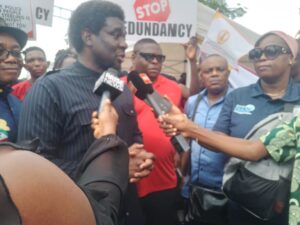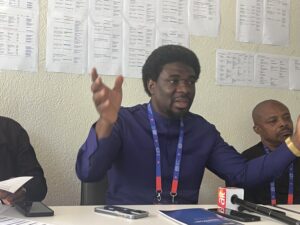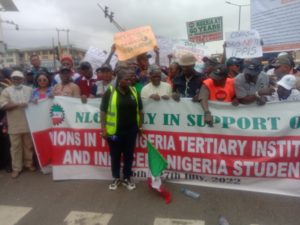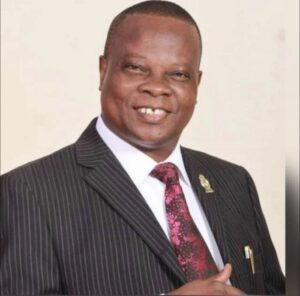AMCON many burdens:N4.7tr debt choking AMCON in twilight•Only N1.1tr recovered

With only a few months left before its sunset, the Asset Management Company of Nigeria (AMCON) is is still locked in a N4.7 trillion debt recovery battle with recalcitrant and influential obligors, who are using available political levers to dress it with the tag of failure.While the the Nigerian economy needs such assets to oil its wheels, the defiant debtors appear naturally unwilling to pay up and are now erecting hurdles on AMCON’s path to recovering the debts.When former President Goodluck Jonathan signed the AMCON Act on July 19, 2010, he gave it a 10 -year lifespan to exit the scene, with its key mandate including the recapitalisation of Nigerian banks buffeted by delinquent debts and to provide an opportunity for them to sell off their Non-Performing Loans (NPLs); to free up valuable resources to enable resource impaired financial institutions to focus on their core activities.The agency’s other mandate also included refocusing Nigerian banks’ lending ideology to prevent future financial crisis in the nation’s financial sector. However, ten years down the line , AMCON according to its spokesman, Jude Nwauzor, has only been able to recover N1.1 trillion debt, with outstanding obligation put at N4.7 trillion owed the Central Bank of Nigeria (CBN).With just a few months left before its sunset, there are serious doubts among economic analysts on chances of further significant recoveries amidst several judicial and legal roadblocks mounted by recalcitrant obligors.As Ahmed Kuru, AMCON Chief Executive prepares to exit this August upon the expiration of his tenure, the Federal Government has yet to speak on his replacement, leaving a further cloud of uncertainties on the establishment.Meanwhile with only N1.1trillion out of N5.4 trillion recovered, over the past ten years of its existence, opinions are divided among stakeholders over the continued retention of the bad bank given the difficulty it has had with recoveries despite the huge amount of taxpayers sank into the recapitalisation of insolvent banks through the Special Purpose Vehicle over the last ten years.While some experts believe it would make much economic sense prolonging AMCON’s lifespan beyond this year to enable it recover more loans, others think it should be wound up in line with its extant Act.A top government official who spoke with Daily Sun on the condition of anonymity predicted AMCON’s liquidation to happen in five year’s time, given the prevailing economic circumstances.“It doesn’t make economic sense to wind down AMCON at this time with its outstanding debt at approximately N5 trillion. Where is it going to get that in an economy already battered by COVID-19?“And should the Federal pass such huge burden on Nigerians, it will become a death knell on the economy. Nigerians are already over burdened with rising petrol cost, high cost of food , VAT hike among other economic challenges. So passing the AMCON liabilities to Nigerian taxpayers would be another killer punch from the Federal Government.President Muhammadu Buhari, has last year, signed the 2019 Amended AMCON Act into law, which gives it additional powers to go after defiant obligors and their properties to recover its monies, its next winding down date was not clearly specified in the amendment, leaving stakeholders at crossroads.However, industry watchers believe that at sunset AMCON’s outstanding liabilities including it staff may be absorbed by the Central Bank of Nigeria and the Nigerian Deposit Insurance Corporation.
AMCON took off with the acquisition of 12,743 NPLs worth N3.8 trillion from 22 Eligible Financial Institutions (EFIs) for a purchase price of N1.8 trillion but has injected N2.2 trillion as financial accommodation to ten banks to prevent systemic failure.Out of the 12,743 NPLs, it has resolved about 4,000 with more than 8,000 others still outstanding.It has also capitalised three EFIs and provided financial accommodation to five.Nwauzor, AMCON spokesman told Daily Sun that the Corporation sold assets worth about N500 billion and have resolved close to 5,000 Eligible Bank Assets (EBAs).“The Corporation has paid over N2 trillion to the CBN. The fundamental objectives for the establishment of AMCON was to—rescue commercial banks and some underlying strategic businesses in Nigeria from the brink of collapse in the aftermath of the global financial crisis of 2008 through acquisition of NPLs and to dispose of the underlying assets in the most profitable manner.As a result of this intervention our current liability with CBN is around N4.7trillion while the sum of N2 trillion has been repaid so far. Some banks are operating today due to AMCON’s intervention in the industry”, he said.In the aviation sector, AMCON purchased about $1 billion NPLs from Nigerian banks owed by major Nigerian airlines, including Aero, Arik Air and others.
AMCON’s Executive Director in charge of Operations, Aminu Ismail, at a recent aviation webinar forum, explained that it’s intervention in the sector was timely. Although the aviation sector accounts for around eight per cent of AMCON’s restructuring portfolio, Ismail explained that its restructuring of loans of airline operators protected a critical sector of the economy.“Aviation in Nigeria has historically been fraught with many challenges including poor capital structure, difficulty in accessing finance, difficulty in accessing cost effective leases, high insurance costs, difficulty in accessing Forex for maintenance and spare parts, multiple taxation by government agencies, weak corporate governance structure, lack of airport infrastructure and very marginal share of the lucrative regional flights of under 20 per cent. But with the advent of the dreaded coronavirus (COVID-19) pandemic, the challenges have now tripled, meaning that the leadership of any airline that wants to stay afloat must think differently and strategically to ensure that the airlines survives,” Ismail said.Also speaking, Managing Director/Chief Executive Officer of AMCON, Mr Ahmed Kuru, at the first seminar for AMCON Receivers/Receiver Managers in General Enforcement, contemplated unleashing its full powers on chronic debtors to recover the outstanding N4.7 trillion toxic debt in the banking industry.The AMCON Chief Executive, who was represented at the event by Mr Aliyu Kalgo, AMCON’s Group Head, Resolution Strategy reiterated the fact that if at sunset, AMCON is unable to recover its outstanding huge debt of approximately N5 trillion, the debt burden would automatically be transferred to the Federal Government of Nigeria for which taxpayers’ monies will be used to settle in the long run.He explained that if the approximated N5 trillion debt owed AMCON remained unrecovered, it would eventually become the burden of the Federal Government and by extension Nigerian taxpayers.In October 2018, AMCON had published a list of 105 of its top debtors. Some of assets of individuals taken over by AMCON include that of Alhaji Umaru Baba Abdullahi, the Chief Promoter of Doggi Group Limited over indebtedness of over N440 million.The taking over of the company followed an order given on June 5 by Honourable Justice A.I. Chikere of the Federal High Court, Abuja division.AMCON took effective possession of the company through its Receiver – Mrs. Juliet Benson of Benson Reeds Legal Practitioners.The assets taken over by AMCON include properties located at Plot 3810, Cadastral Zone A04, Asokoro District, Federal Capital Territory, Abuja and Plot 1274, Cadastral Zone B07, Katampe Hills, Katampe District, Abuja.The case of Doggi Group Limited and its promoter had been a protracted issue because the loan was taken during the first phase of Eligible Bank Assets purchase from Union Bank Plc in 2011.Since then, AMCON said it had offered the obligor soft landing and had explored all avenues to resolve the matter amicably.But the obligor, and his company, Doggi Group Limited remained unwilling to repay the huge debt to the Corporation.The Corporation also took over assets belonging to Ike Nwabuoku, the Chief Promoter of Unicorn Place & Leisure Services Limited over indebtedness of over N1.3 billion. The action followed an order of Honourable Justice Saliu Saidu of the Federal High Court, Lagos division. In compliance with the enforcement order, AMCON took effective possession of the two properties through its Debt Recovery Agent – Kayode Ajekigbe of Chris O. Okunowo & Co.Since the purchase, AMCON said in a statement that it had offered the obligor all sorts of concessions and explored all avenues to resolve the debt harmoniously.Over the years, there have been numerous calls for the dissolution of AMCON. The International Monetary Fund (IMF) was the first to recommend that “a credible exit strategy for AMCON is devised, in line with the one-off character of its operations.”More so, Ernst & Young, the Central Bank of Nigeria, and the Nigerian Deposit Insurance Corporation have recommended that AMCON be scrapped.In a retreat last year with members of the House Committee on Banking and Currency in Lagos, the AMCON CEO, Ahmed Kuru said that the Corporation was working with the CBN and NDIC to “tinker things a little and then at certain point in time liaising with the National Assembly to draw a line.”He added: “My suggestion will be to put all the remaining debt in one vehicle and fling the vehicle to anybody or firm that wants to buy at a considerable discount. At that stage maybe it would be wise to do that and then close AMCON. “There are funds all over the world that are in search of such an opportunity. Then the contributions into the sinking fund from the banks, NDIC and CBN would over the period of two or three years depending on how the rates are adjusted be gradually cleared.”
OPS seeks soft landing for indebted businesses
Meanwhile, the Organised Private Sector (OPS) has charged AMCON to consider supporting troubled businesses to stay afloat as part of its cardinal objective.Director General of Lagos Chamber of Commerce and Industry (LCCI), Muda Yusuf, while reviewing the activities of AMCON noted that the totality of the considerations should not just be financial or commercial.According to him, the developmental dimension is also important, as the preservation of Arik and Aero Contractors airlines is one such laudable AMCON intervention.He listed AMCON’s three principal objectives to include saving banks from collapse consequent on the burden of toxic assets. “The collapse of banks could have a systemic impact on the financial system. If the risk to financial system crystalises, the implications for the economy would be profound. It thus makes sense to save the banks from going under,” he said.Yusuf highlighted the second key objective of AMCON as recovery of debts, which he said has taken the form of foreclosures on assets and collaterals that were pledged to secure the loans. He stated that the pace of the recovery has been slow for various reasons, but maintained that it is necessary to ensure the recovery of the debts.He said “not all loan defaulters have criminal intents, as there are defaults resulting from genuine business failures which may have been triggered by policy changes, regulatory upsets, macroeconomic shocks, or force majure. For LCCI, this category of debtors needs to be treated differently from the serial debtors that have criminal intent of not paying back abinitio, stressing that a great deal of discernment is important in these issues.He said, “There are companies on the AMCON list that have potential of contributing immensely to the development of the economy through employment generation, wealth creation, revenue generation for government and service provisions to the citizens. These are developmental benefits that should be reckoned with.”But for indebtedness that were ill -motivated, the LCCI boss proffered that appropriate sanctions should be visited on the perpetrators and their collaborators.Meanwhile, an anonymous shareholder activist told Daily Sun that Nigeria has had its own fair share of the impact of the 2008 global financial meltdown on banking and other financial sector that made the government to adopt some innovative measures to prevent systemic collapse of the banking system. Three prominent ones stand out — bailout, bridge banking and, perhaps the most significant of all, the establishment of Assets Management Corporation of Nigeria (AMCON) in 2010. Looking at what it has done, I would say it went ahead to efficiently resolve the non-performing loans (NPL) assets of the banks in the Nigerian economy. Thus far, AMCON’s interventions have worked. However, debt recovery should not be allowed to mar the successful stabilisation of the economy in which we are not all that happy with.Also commenting, the Deputy President of the Trade Union Congress (TUC) and the President of the Association of Senior Staff of Banks Insurance and Financial Institutions (ASSBIFFI), Oyinkan Olasanoye, noted that the issue with AMCON has been more in the interpretation of its concept and operations by the judiciary.“Judiciary should help in fast tracking its cases in court or a time limit is set for them.” she said.Olasanoye said AMCON could make a success of its core responsibility provided debtors could be sanctioned more appropriately.
M
With only a few months left before its sunset, the Asset Management Company of Nigeria (AMCON) is is still locked in a N4.7 trillion debt recovery battle with recalcitrant and influential obligors, who are using available political levers to dress it with the tag of failure.
While the the Nigerian economy needs such assets to oil its wheels, the defiant debtors appear naturally unwilling to pay up and are now erecting hurdles on AMCON’s path to recovering the debts.
When former President Goodluck Jonathan signed the AMCON Act on July 19, 2010, he gave it a 10 -year lifespan to exit the scene, with its key mandate including the recapitalisation of Nigerian banks buffeted by delinquent debts and to provide an opportunity for them to sell off their Non-Performing Loans (NPLs); to free up valuable resources to enable resource impaired financial institutions to focus on their core activities.
The agency’s other mandate also included refocusing Nigerian banks’ lending ideology to prevent future financial crisis in the nation’s financial sector.
However, ten years down the line , AMCON according to its spokesman, Jude Nwauzor, has only been able to recover N1.1 trillion debt, with outstanding obligation put at N4.7 trillion owed the Central Bank of Nigeria (CBN).
With just a few months left before its sunset, there are serious doubts among economic analysts on chances of further significant recoveries amidst several judicial and legal roadblocks mounted by recalcitrant obligors.
As Ahmed Kuru, AMCON Chief Executive prepares to exit this August upon the expiration of his tenure, the Federal Government has yet to speak on his replacement, leaving a further cloud of uncertainties on the establishment.
Meanwhile with only N1.1trillion out of N5.4 trillion recovered, over the past ten years of its existence, opinions are divided among stakeholders over the continued retention of the bad bank given the difficulty it has had with recoveries despite the huge amount of taxpayers sank into the recapitalisation of insolvent banks through the Special Purpose Vehicle over the last ten years.
While some experts believe it would make much economic sense prolonging AMCON’s lifespan beyond this year to enable it recover more loans, others think it should be wound up in line with its extant Act.
A top government official who spoke with Daily Sun on the condition of anonymity predicted AMCON’s liquidation to happen in five year’s time, given the prevailing economic circumstances.
“It doesn’t make economic sense to wind down AMCON at this time with its outstanding debt at approximately N5 trillion. Where is it going to get that in an economy already battered by COVID-19?
“And should the Federal pass such huge burden on Nigerians, it will become a death knell on the economy. Nigerians are already over burdened with rising petrol cost, high cost of food , VAT hike among other economic challenges. So passing the AMCON liabilities to Nigerian taxpayers would be another killer punch from the Federal Government.
President Muhammadu Buhari, has last year, signed the 2019 Amended AMCON Act into law, which gives it additional powers to go after defiant obligors and their properties to recover its monies, its next winding down date was not clearly specified in the amendment, leaving stakeholders at crossroads.
However, industry watchers believe that at sunset AMCON’s outstanding liabilities including it staff may be absorbed by the Central Bank of Nigeria and the Nigerian Deposit Insurance Corporation.
AMCON took off with the acquisition of 12,743 NPLs worth N3.8 trillion from 22 Eligible Financial Institutions (EFIs) for a purchase price of N1.8 trillion but has injected N2.2 trillion as financial accommodation to ten banks to prevent systemic failure.
Out of the 12,743 NPLs, it has resolved about 4,000 with more than 8,000 others still outstanding.
It has also capitalised three EFIs and provided financial accommodation to five.
Nwauzor, AMCON spokesman told Daily Sun that the Corporation sold assets worth about N500 billion and have resolved close to 5,000 Eligible Bank Assets (EBAs).
“The Corporation has paid over N2 trillion to the CBN. The fundamental objectives for the establishment of AMCON was to—rescue commercial banks and some underlying strategic businesses in Nigeria from the brink of collapse in the aftermath of the global financial crisis of 2008 through acquisition of NPLs and to dispose of the underlying assets in the most profitable manner.
As a result of this intervention our current liability with CBN is around N4.7trillion while the sum of N2 trillion has been repaid so far. Some banks are operating today due to AMCON’s intervention in the industry”, he said.
In the aviation sector, AMCON purchased about $1 billion NPLs from Nigerian banks owed by major Nigerian airlines, including Aero, Arik Air and others.
AMCON’s Executive Director in charge of Operations, Aminu Ismail, at a recent aviation webinar forum, explained that it’s intervention in the sector was timely. Although the aviation sector accounts for around eight per cent of AMCON’s restructuring portfolio, Ismail explained that its restructuring of loans of airline operators protected a critical sector of the economy.
“Aviation in Nigeria has historically been fraught with many challenges including poor capital structure, difficulty in accessing finance, difficulty in accessing cost effective leases, high insurance costs, difficulty in accessing Forex for maintenance and spare parts, multiple taxation by government agencies, weak corporate governance structure, lack of airport infrastructure and very marginal share of the lucrative regional flights of under 20 per cent. But with the advent of the dreaded coronavirus (COVID-19) pandemic, the challenges have now tripled, meaning that the leadership of any airline that wants to stay afloat must think differently and strategically to ensure that the airlines survives,” Ismail said.
Also speaking, Managing Director/Chief Executive Officer of AMCON, Mr Ahmed Kuru, at the first seminar for AMCON Receivers/Receiver Managers in General Enforcement, contemplated unleashing its full powers on chronic debtors to recover the outstanding N4.7 trillion toxic debt in the banking industry.
The AMCON Chief Executive, who was represented at the event by Mr Aliyu Kalgo, AMCON’s Group Head, Resolution Strategy reiterated the fact that if at sunset, AMCON is unable to recover its outstanding huge debt of approximately N5 trillion, the debt burden would automatically be transferred to the Federal Government of Nigeria for which taxpayers’ monies will be used to settle in the long run.
He explained that if the approximated N5 trillion debt owed AMCON remained unrecovered, it would eventually become the burden of the Federal Government and by extension Nigerian taxpayers.
In October 2018, AMCON had published a list of 105 of its top debtors. Some of assets of individuals taken over by AMCON include that of Alhaji Umaru Baba Abdullahi, the Chief Promoter of Doggi Group Limited over indebtedness of over N440 million.
The taking over of the company followed an order given on June 5 by Honourable Justice A.I. Chikere of the Federal High Court, Abuja division.
AMCON took effective possession of the company through its Receiver – Mrs. Juliet Benson of Benson Reeds Legal Practitioners.
The assets taken over by AMCON include properties located at Plot 3810, Cadastral Zone A04, Asokoro District, Federal Capital Territory, Abuja and Plot 1274, Cadastral Zone B07, Katampe Hills, Katampe District, Abuja.
The case of Doggi Group Limited and its promoter had been a protracted issue because the loan was taken during the first phase of Eligible Bank Assets purchase from Union Bank Plc in 2011.
Since then, AMCON said it had offered the obligor soft landing and had explored all avenues to resolve the matter amicably.
But the obligor, and his company, Doggi Group Limited remained unwilling to repay the huge debt to the Corporation.
The Corporation also took over assets belonging to Ike Nwabuoku, the Chief Promoter of Unicorn Place & Leisure Services Limited over indebtedness of over N1.3 billion. The action followed an order of Honourable Justice Saliu Saidu of the Federal High Court, Lagos division. In compliance with the enforcement order, AMCON took effective possession of the two properties through its Debt Recovery Agent – Kayode Ajekigbe of Chris O. Okunowo & Co.
Since the purchase, AMCON said in a statement that it had offered the obligor all sorts of concessions and explored all avenues to resolve the debt harmoniously.
Over the years, there have been numerous calls for the dissolution of AMCON. The International Monetary Fund (IMF) was the first to recommend that “a credible exit strategy for AMCON is devised, in line with the one-off character of its operations.”
More so, Ernst & Young, the Central Bank of Nigeria, and the Nigerian Deposit Insurance Corporation have recommended that AMCON be scrapped.
In a retreat last year with members of the House Committee on Banking and Currency in Lagos, the AMCON CEO, Ahmed Kuru said that the Corporation was working with the CBN and NDIC to “tinker things a little and then at certain point in time liaising with the National Assembly to draw a line.”
He added: “My suggestion will be to put all the remaining debt in one vehicle and fling the vehicle to anybody or firm that wants to buy at a considerable discount. At that stage maybe it would be wise to do that and then close AMCON. “There are funds all over the world that are in search of such an opportunity. Then the contributions into the sinking fund from the banks, NDIC and CBN would over the period of two or three years depending on how the rates are adjusted be gradually cleared.”
OPS seeks soft landing for indebted businesses
Meanwhile, the Organised Private Sector (OPS) has charged AMCON to consider supporting troubled businesses to stay afloat as part of its cardinal objective.
Director General of Lagos Chamber of Commerce and Industry (LCCI), Muda Yusuf, while reviewing the activities of AMCON noted that the totality of the considerations should not just be financial or commercial.
According to him, the developmental dimension is also important, as the preservation of Arik and Aero Contractors airlines is one such laudable AMCON intervention.
He listed AMCON’s three principal objectives to include saving banks from collapse consequent on the burden of toxic assets. “The collapse of banks could have a systemic impact on the financial system. If the risk to financial system crystalises, the implications for the economy would be profound. It thus makes sense to save the banks from going under,” he said.
Yusuf highlighted the second key objective of AMCON as recovery of debts, which he said has taken the form of foreclosures on assets and collaterals that were pledged to secure the loans. He stated that the pace of the recovery has been slow for various reasons, but maintained that it is necessary to ensure the recovery of the debts.
He said “not all loan defaulters have criminal intents, as there are defaults resulting from genuine business failures which may have been triggered by policy changes, regulatory upsets, macroeconomic shocks, or force majure. For LCCI, this category of debtors needs to be treated differently from the serial debtors that have criminal intent of not paying back abinitio, stressing that a great deal of discernment is important in these issues.
He said, “There are companies on the AMCON list that have potential of contributing immensely to the development of the economy through employment generation, wealth creation, revenue generation for government and service provisions to the citizens. These are developmental benefits that should be reckoned with.”
But for indebtedness that were ill -motivated, the LCCI boss proffered that appropriate sanctions should be visited on the perpetrators and their collaborators.
Meanwhile, an anonymous shareholder activist told Daily Sun that Nigeria has had its own fair share of the impact of the 2008 global financial meltdown on banking and other financial sector that made the government to adopt some innovative measures to prevent systemic collapse of the banking system. Three prominent ones stand out — bailout, bridge banking and, perhaps the most significant of all, the establishment of Assets Management Corporation of Nigeria (AMCON) in 2010. Looking at what it has done, I would say it went ahead to efficiently resolve the non-performing loans (NPL) assets of the banks in the Nigerian economy. Thus far, AMCON’s interventions have worked. However, debt recovery should not be allowed to mar the successful stabilisation of the economy in which we are not all that happy with.
Also commenting, the Deputy President of the Trade Union Congress (TUC) and the President of the Association of Senior Staff of Banks Insurance and Financial Institutions (ASSBIFFI), Oyinkan Olasanoye, noted that the issue with AMCON has been more in the interpretation of its concept and operations by the judiciary.
“Judiciary should help in fast tracking its cases in court or a time limit is set for them.” she said.
Olasanoye said AMCON could make a success of its core responsibility provided debtors could be sanctioned more appropriately.




